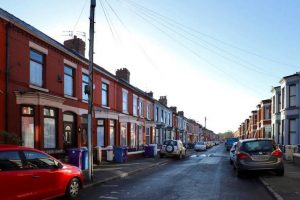Higher selling prices fuel Redrow’s profit surge

THE turnaround at housebuilder Redrow under founder Steve Morgan is continuing apace as the firm announced margins had more than doubled as pre-tax profits shot up from £700,000 to £25.3m.
The Flintshire-based company grew sales by 14% to £452.7m in the year to June 30, which it attributed to the introduction of its New Heritage Collection range, which allowed it to push up the average selling price of its houses from £149,300 to £164,800. Moreover, the number of houses sold also increased by 1.5% to 2,626.
“Redrow has delivered another robust performance improving both revenue and profitability, in spite of the difficulties facing the homebuilding industry,” said Mr Morgan.
“Through decisive management action, particularly the introduction of the New Heritage Collection, we have been able to increase average selling prices and margins by changing mix and keeping costs under control.”
Redrow’s operating margins increased to 6.9%, from 3.2% last year, which Morgan said had been achieved despite significant investment in its new London division. It has decided not to pay a dividend, instead arguing that it needed to invest in land for future development.
The new division has bought five sites in London containing plots for 342 homes, which it said had a gross development value of £200m. The purchases meant that the business’s net debt increased, though, to £75.4m, from £47,1m at the start of the year.
Morgan warned that the housebuilding market was still being hampered by the lack of available finance for first-time buyers (FTBs).
He said that although higher loan-to-value mortgages were being introduced, the stringency of credit scoring employed by lenders and the higher interest rates charged for them made these products “unattainable for all but the more affluent of first time buyers”.
He added that most FTBs don’t have the current average deposit level of 25% saved to buy their first home, and called for the reintroduction of Mortgage Indemnity Guarantee products.
“During the 1930s and the post-war years, the significant home building activity of the time not only provided desperately-needed new homes, it also provided a huge stimulus to the UK GDP during what were difficult economic periods.
“With five new jobs being created for every new home built, it is strongly in our country’s interest to resolve the FTB mortgage issue, which would once again enable the housing industry to provide urgently-needed new homes and a major stimulus to the economy.”








